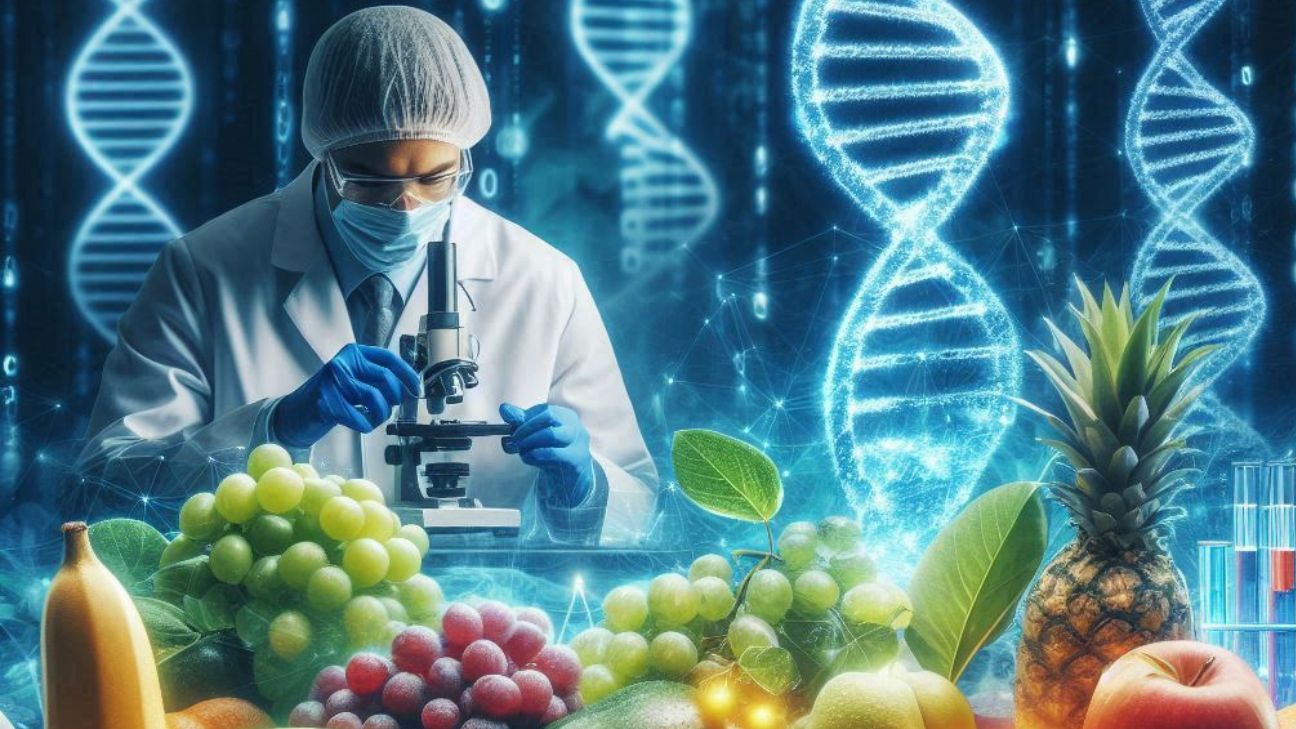Genetically Modified Organisms, or GMOs, have been a hot topic globally, and India is no exception. With discussions ranging from food security to health and environmental impacts, it’s essential to understand what GMOs are and what they mean for us.
GMOs are plants, animals, or microbes whose genetic material (either DNA or RNA) has been altered using advanced genetic engineering techniques, also known as bioengineering.
Unlike traditional methods like selective breeding, where desired traits are enhanced over time, GMOs allow scientists to introduce specific traits directly into an organism’s DNA, resulting in more controlled and efficient outcomes.
Science Behind GMOs
The process of creating GMOs involves transferring genes responsible for desirable traits from one organism to another. This can be done between different species—for instance, a gene from a fish can be introduced into a plant.
This level of precision is what sets GMOs apart from traditional breeding methods. Additionally, genome editing, a newer technique, allows scientists to add, remove, or modify DNA in a highly targeted way, speeding up the development of organisms with beneficial traits.
Benefits of GMOs
For a country like India, where agriculture is the backbone of the economy, GMOs offer several potential advantages:
- Nutritional Improvement: GMOs can be engineered to have higher nutritional value, addressing malnutrition and dietary deficiencies in many parts of India.
- Better Taste and Quality: Genetic modifications can improve the taste, texture, and quality of food, making it more appealing to consumers.
- Resilience to Climate Challenges: With the increasing threat of droughts and erratic weather patterns, GMOs can help develop crops that require less water and are more resistant to environmental stress.
- Reduced Use of Pesticides: Certain GMOs are designed to be pest-resistant, which could reduce the reliance on chemical pesticides that are often harmful to both the environment and human health.
- Increased Crop Yields and Lower Costs: Faster-growing crops with longer shelf lives can contribute to food security by ensuring a stable and affordable food supply.
Common Concerns
Despite these benefits, GMOs have raised several concerns in India, much like in the rest of the world. Some of the key issues include:
- Health Risks: There is a fear that GMOs might cause allergic reactions or introduce toxins into the food supply. However, regulatory bodies like the Food Safety and Standards Authority of India (FSSAI) ensure that GMOs are thoroughly tested for safety before they are approved.
- Unintended Consequences: Some worry that genetic modifications could lead to unforeseen changes that might be harmful. However, ongoing research has not found any such risks associated with approved GMOs.
- Gene Transfer: Concerns about GMOs transferring their modified genes to non-GMO plants or animals are managed through strict regulations and containment practices.
- Nutritional Value: There is also a debate over whether GMOs are as nutritious as their non-GMO counterparts. Scientific studies have shown that GMOs are just as safe and nutritious as traditional foods.
Regulation
In India, the regulatory oversight of GMOs involves multiple agencies, including the Genetic Engineering Appraisal Committee (GEAC), the Ministry of Environment, Forest and Climate Change, and the FSSAI.
These bodies ensure that GMOs undergo rigorous safety assessments before they reach the market. As of now, several GM crops, such as Bt cotton, have been approved for cultivation, while others, like Bt brinjal, are still under consideration.
Common GMO Food Sources in India
In India, Bt cotton is the most prominent GMO crop, widely used by farmers for its resistance to pests like the bollworm. While other GMO foods like corn, soybeans, and canola are not as prevalent in Indian agriculture, they are commonly found in processed foods imported from other countries. These include products made with corn syrup, soybean oil, and other GMO ingredients.
In summary, the conversation around GMOs is highly relevant to India’s agricultural future. With the country’s growing population and the challenges posed by climate change, GMOs offer a potential solution to enhance food security, improve crop resilience, and address nutritional deficiencies.
However, it is equally important to consider the concerns and ensure that GMOs are used responsibly, with robust regulations in place. For Indian consumers, awareness is key. As the regulatory landscape evolves, it’s essential to stay informed about the foods we consume and the technologies behind them.
With major global organizations like the World Health Organization (WHO) and the National Academy of Science affirming the safety of GMOs, it is clear that genetically engineered foods can play a significant role in our future.

